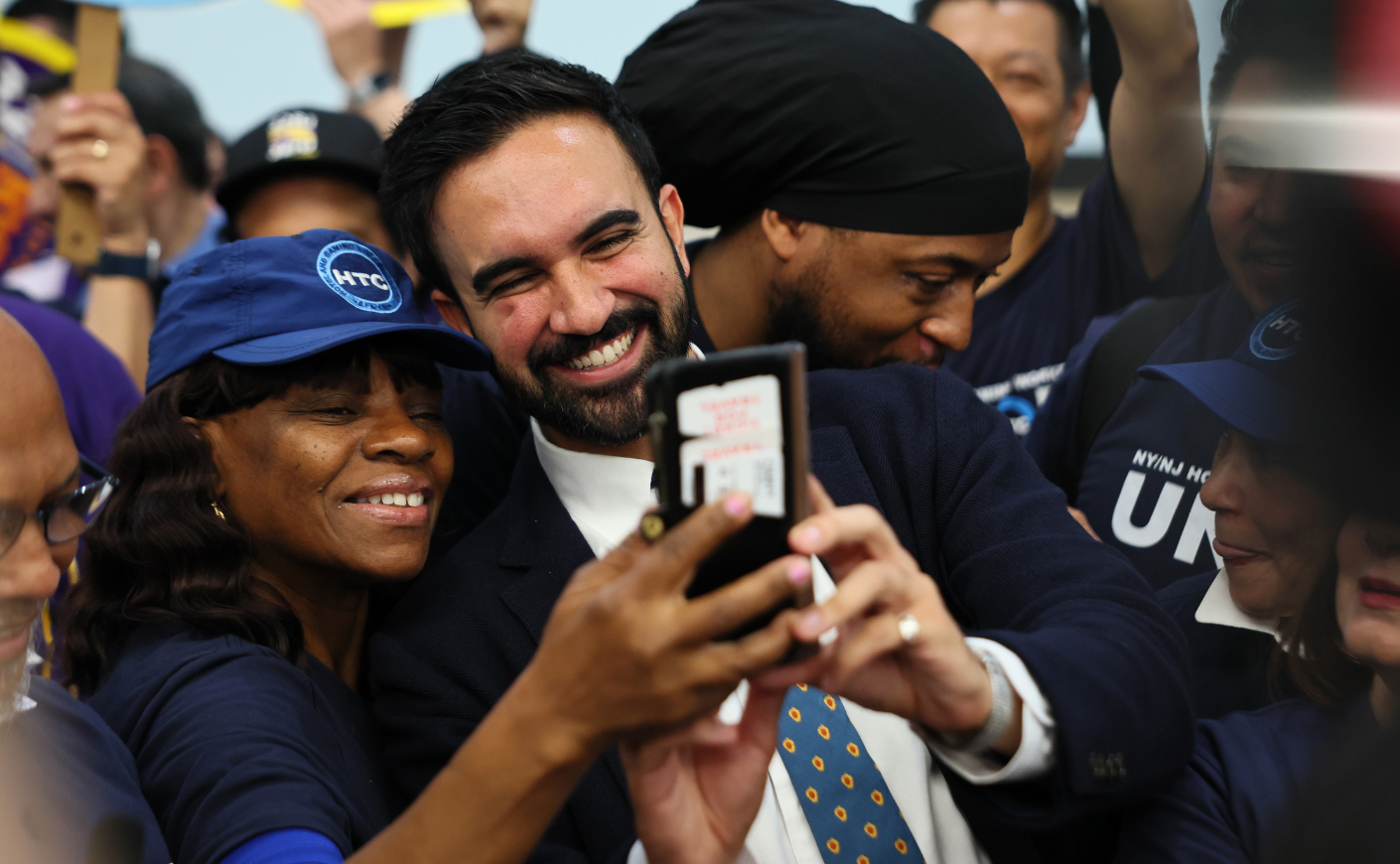While New Yorkers are attributing Zohran Mamdani’s surprising primary victory to his “listening” to voters, dozens of members of The Center for Mind-Body Medicine’s (CMBM) Gaza trauma-healing team have been telling me that listening has saved their lives.
As a psychiatrist deeply committed to Freud’s “talking cure” and to the listening — the respectful, empathic, non-judgmental attention that is central to it — I was hopeful, but also saddened. Saddened because it seemed such a rare and marvelous thing for a politician to actually listen to voters, to hear and respond to their concerns, rather than the shouted demands of party leaders and major donors. And saddened also because I was reminded that listening — and particularly, paying respectful attention to those with whom we disagree — has largely faded from our public life.
Fifty years ago, friends who were Democratic senators enjoyed the company of their Republican counterparts. Their friendly sparring opened minds more often than it hardened positions.
In early 2021, I met several times with a group of Democratic members of Congress who’d been traumatized by the Jan. 6 assault on the Capitol. They warmly welcomed the opportunity to share fear and anger, their difficulties with sleep and their tarnished trust, with colleagues who listened respectfully. However, when they asked Republican members who’d also been threatened, none chose to join.
It seems to me that listening has been continuing to lose ground. So many Americans seem trapped in the echo chambers of online algorithms, where opinions only amplify preconceptions and prejudices, where there is little or no room for the empathic responses and learning of true listening. Even when opponents are publicly expressing contradictory opinions (on cable news, for example), I have the sense of performers demanding attention rather than partners listening to one another as they travel towards truth.
On the other hand, my 50 years of experience with deeply traumatized people continues to give me hope for the healing power of listening. Gazan women and men whose children have been killed and homes destroyed in this most recent war tell me that the techniques that CMBM teaches, like slow, deep breathing to reduce stress, are important, but that the kind and generous listening of our team leaders is what dispelled suicidal despair.
And here in the U.S., I have repeatedly seen catastrophes inspire people on opposite sides of the political divide to listen to one another. When overdose deaths plagued an Appalachian county, our CMBM team was able to bring conservative law enforcement officers and progressive community activists together to share their anger and pain, to appreciate their similarities as well as their differences, and to begin to address community-wide stressors. And our teams have been able to help facilitate the same dynamic elsewhere, after hurricanes Katrina in Louisiana, Harvey in Houston, and Maria in Puerto Rico, and following the wildfires in northern California, as well as after mass shootings.
A commitment to listening and a few simple ground rules have been enough to make it possible: bringing together all who are concerned about their community; dividing them into small groups; instructing everyone to “speak in turn and from the heart and about yourself”; reminding them that while others are speaking they should shut up, breathe deeply, and listen carefully.
In these meetings, as in a number of published experimental studies, defensiveness decreased while interest in understanding of and compassion for the others’ point of view increased. Sometimes opinions changed, sometimes not. But people who listened, and those who were listened to, were able to appreciate each other and (in many cases for the first time) work together.
Though heightened in extreme situations, this willingness to listen is widely distributed among Americans. According to one population-wide survey published by Cornell University, two-thirds of Americans are “open to hearing the opinions of political opponents.”
Zohran Mamdani and communities coping with mass tragedies are giving us glimpses of the appeal and power of listening. Perhaps Mamdani, learning the lesson of his campaign, will create ongoing opportunities for New Yorkers to listen to one another. Perhaps other politicians, and the rest of us, can learn from him and our disaster-challenged communities to listen to one another.
James S. Gordon, MD, a psychiatrist, is the author of Transforming Trauma: The Path to Hope and Healing, and founder and CEO of The Center for Mind-Body Medicine.









